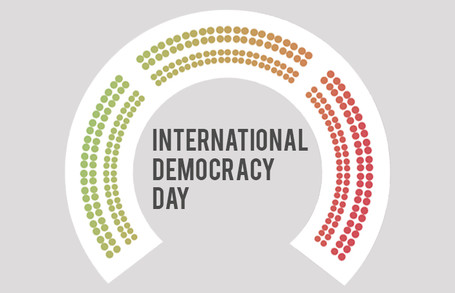
The message of International Day of Democracy 2015 is “space for civil society”, as a reminder of the role of a strong civil society in working for a better future and in holding governments to account.
This 15 September, the local and regional governments of UCLG join the global celebrations of International Democracy Day. Democracy is one of the founding values of our organization and it is our firm belief that local governments, as the level of the government closest to the people, are best placed to build a firm foundation for democracy by listening and responding to the needs of our communities.
We also know that local governments cannot live up to our democratic aspirations without a strong and vibrant civil society. First, civil society organizations are a vital mechanism for gathering the collective intelligence of our communities and channelling the demands of the people to local governments. They are particularly important in amplifying the voices of traditionally underrepresented or excluded groups. Second, civil society is not just a useful ‘tool’ for local governments. A strong civil society helps to hold local governments to account. The oversight of civil society forces us to be better representatives, and administrators of public goods. This oversight also ensures that our towns and cities are welcoming places, based on solidarity.
Over recent decades, local governments have been at the vanguard of understanding the potential of civil society to be a partner in democratic change. We have led the way in experimenting with new forms of decision-making, such as participatory budgeting and urban planning. We have also been pioneers in opening up access to public information and data to citizens, allowing civil society to better scrutinize local government administrations and hold us accountable. We have shown, in our cities and towns, that working with civil society results in better, more sustainable outcomes. In many parts of the world, the idea of the ‘right to the city’, a collective right to ‘change ourselves by changing the city’, has led to a growing appreciation of the role of civil society in urban governance.
We are encouraged to see national governments and the international community start to take heed of these lessons. The Post-2015 Development Agenda, to be adopted in New York on 23-25 September, is testament to progress in this field. Sustainable Development Goal 16 calls on Member States to “promote peaceful and inclusive societies for sustainable development, provide access to justice for all and build effective, accountable and inclusive institutions at all levels.” To achieve this goal, all levels of government, including local and regional governments, will have to implement responsive, inclusive, participatory and representative decision-making and ensure public access to information.
That said, SDG 16 will not be enough. We need more ambition to strengthen local democracy. In order for local governments and civil society to live up to our potential, power and resources must be decentralized, according to the principle of subsidiarity, to empower local communities to make decisions about the issues that affect them directly. The New Urban Agenda, which will be adopted at the Habitat III Conference next year, will need to address this deficit and put local governance back where it belongs at the centre of the development agenda.
During the negotiations on Habitat III, and as the world starts to consider the implementation of the Post-2015 Agenda, UCLG will continue to advocate for a single, universal agenda that puts local democracy at the heart of a sustainable future.
Read the UN secretary-general message on the International Day of Democracy










